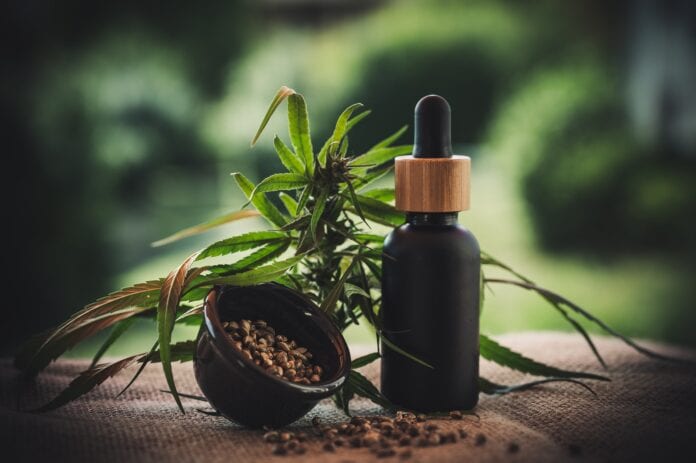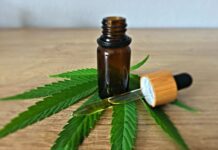Cannabis indica and Cannabis sativa are two types of hemp plants that produce cannabidiol (CBD) oil. As a result of its use in the production of marijuana, cannabis plants may be more familiar to you. CBD, on the other hand, is not marijuana. To make CBD oil, the oil must be blended with a carrier oil, such as hemp seed or coconut oil. Different concentrations of tinctures are available for purchase. Capsules, gummies, and sprays can also be made with the oil. Supporters of CBD oil believe it can help alleviate pain and anxiety; it can boost appetite; and, in certain cases, it may even help treat seizures.
CBD
Many cultures have relied on the medicinal properties of cannabis for thousands of years. Hemp and marijuana are two varieties of cannabis Sativa. Cannabis sativa (CBD) is extracted from the hemp plant. It’s important to note that CBD is a herbal medication, meaning that it comes from a plant, in this instance, the cannabis Sativa plant.
CBD Works
A great deal is still unknown about how CBD impacts the body’s processes and how it operates.
Cannabinoids are a group of compounds that include CBD. The phytocannabinoid designation is given to this compound because of its botanical origins. Endocannabinoids, or natural cannabinoids, are also produced by the human body. Both types of cannabinoids activate cannabinoid receptors. The endocannabinoid system includes these receptors (ECS).
Controls the release of neurotransmitters in the brain and throughout the nervous system. The endocannabinoid system responds to both phytocannabinoids and endocannabinoids. CBD can have a wide range of impacts on the body through interaction with the endocannabinoid system. The body’s overall physical functions can be restored, pain reduced, and the body’s response to inflammation can be reduced.
CBD Oil usage and its effect on health
We don’t know how CBD works. THC attaches to certain brain chemicals to produce its intoxicating effects, but CBD does not. A type of receptor known as a cannabinoid receptor is found in the human body.
On the other hand, CBD affects receptors other than CB1 and CB2, such as opioid receptors, which help reduce pain. Your mood is controlled by the chemical serotonin, which glycine receptors affect.
People who believe in the therapeutic effect of CBD oil say it can help with a wide range of health issues, including:
- Anxiety
- Acne
- Chronic pain
- Drug use and withdrawal
- Depression
- Epilepsy
- High blood pressure
- Glaucoma
- Insomnia
- Parkinson’s disease
- Muscle spasms
- Poor appetite
Anxiety
CBD may help treat anxiety disorders, according to a review published in the journal Neurotherapeutics of previous research. It was a surprise to the researchers because CBD products in UK had previously been proven to have substantial anxiolytic effects in animal studies. CBD levels as low as 10 milligrams per kilogram (mg/kg) have been shown to reduce anxiety symptoms, whilst doses as high as 100 mg/kg have had little to no impact. CBD’s effect on the brain may explain why this occurs. As long as CBD is taken in small doses, it may behave like its natural surroundings, binding to receptors and increasing signaling. However, the opposite effect could occur at greater doses if this receptor site becomes overactive. There haven’t been many studies on CBD’s ability to alleviate human anxiety. Yet another study in the Brazilian Journal of Psychiatry proved this theory wrong.
Addiction
According to a review published in the journal Substance Abuse, CBD oil may benefit those suffering from substance use disorders. The findings of published studies were examined in the study. A total of nine investigations were conducted on animals, and five research were conducted on humans. CBD has the potential to treat persons with opioid, cocaine, and psychostimulant use disorders, according to the study. There was a wide variation in the effects of CBD on different substances. For example, CBD products without THC were ineffective in reducing opioid withdrawal symptoms. People addicted to drugs like cocaine and methamphetamine saw a decrease in their drug-seeking habits. Some experts have proposed CBD as a potential treatment for cannabis and nicotine addiction, but additional research is required to confirm this hypothesis.
High Blood Pressure
CBD oil has been shown in one research to lower high blood pressure in some people, reducing the risk of heart disease. Nine healthy men were randomly assigned to receive either 600 mg of CBD or a placebo. Before and following stresses like exercise or acute cold, males who took CBD had lower blood pressure than those who did not. The researchers also examined the amount of blood in the heart after a heartbeat. Men who took CBD saw decreased stroke volume, indicating that their hearts were beating more effectively. According to the study, people with high blood pressure who suffer from anxiety or stress may benefit from taking CBD oil.
However, there is no evidence that CBD oil can cure or prevent high blood pressure on its own or in people at risk. High blood pressure isn’t caused by stress, although it can worsen.
Seizures
Epidiolex, a CBD oral solution, has been approved by the Food and Drug Administration.
Dravet syndrome and Lennox-Gastaut syndrome are two rare kinds of epilepsy in children under the age of two, for which Epidiolex is prescribed. Starting in the first year of life, these are extremely rare genetic abnormalities that result in a lifetime of seizures.
The usefulness of CBD in treating seizures is unknown in any other conditions outside epilepsy and narcolepsy. Although Epidiolex appears to have some anti-seizure effects, it is unclear if they are due to CBD or other substances. Evidence suggests that CBD may interact with seizure medications like Onfi (clobazam) and boost blood levels of these drugs. As a result, more investigation is required to discover the connection.
Side Effects
CBD oil has been demonstrated to have adverse effects in medical studies. Every person’s experience with CBD is unique, as are the adverse effects they experience and how severe they are.
CBD has been linked to several common adverse effects, including:
- Anxiety
- Changes in mood
- Changes in appetite
- Diarrhea
- Drowsiness
- Dizziness
- Dry mouth
- Vomiting
- Nausea
Hepatic enzymes, a sign of inflammation, may be elevated in the presence of CBD oil.
Conclusion
The bottom line is that CBD’s preliminary research appears promising, but further research is needed. Long-term discomfort and insomnia may benefit from it. It has many uses. CBD is only one of several supplements to ease back pain or sleeplessness.
Help keep news FREE for our readers
Supporting your local community newspaper/online news outlet is crucial now more than ever. If you believe in independent journalism, then consider making a valuable contribution by making a one-time or monthly donation. We operate in rural areas where providing unbiased news can be challenging. Read More About Supporting The West Wales Chronicle

























